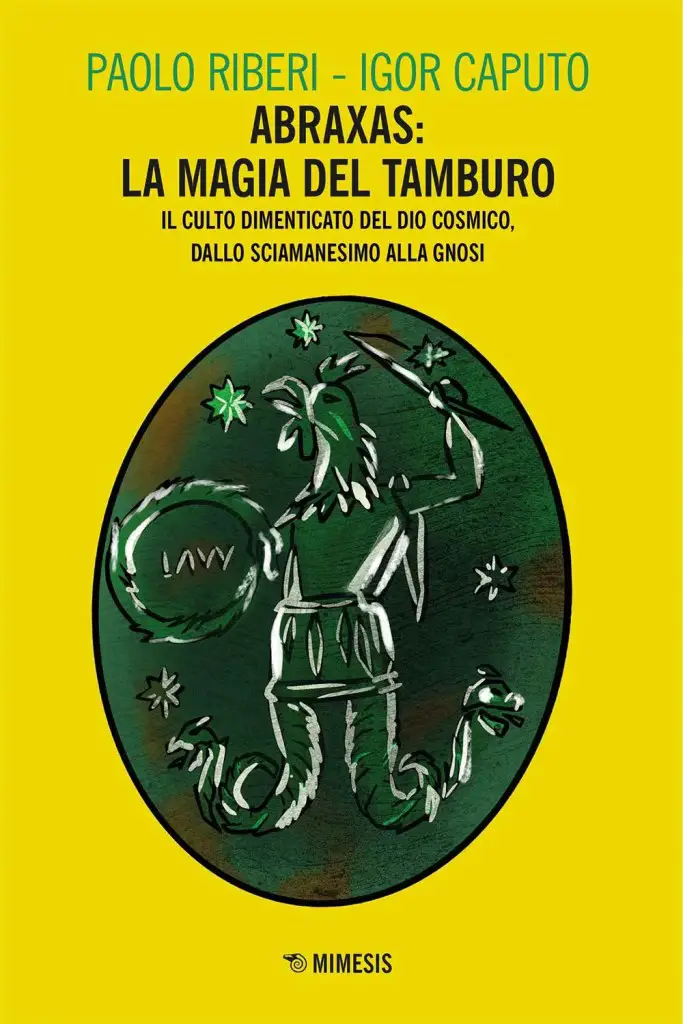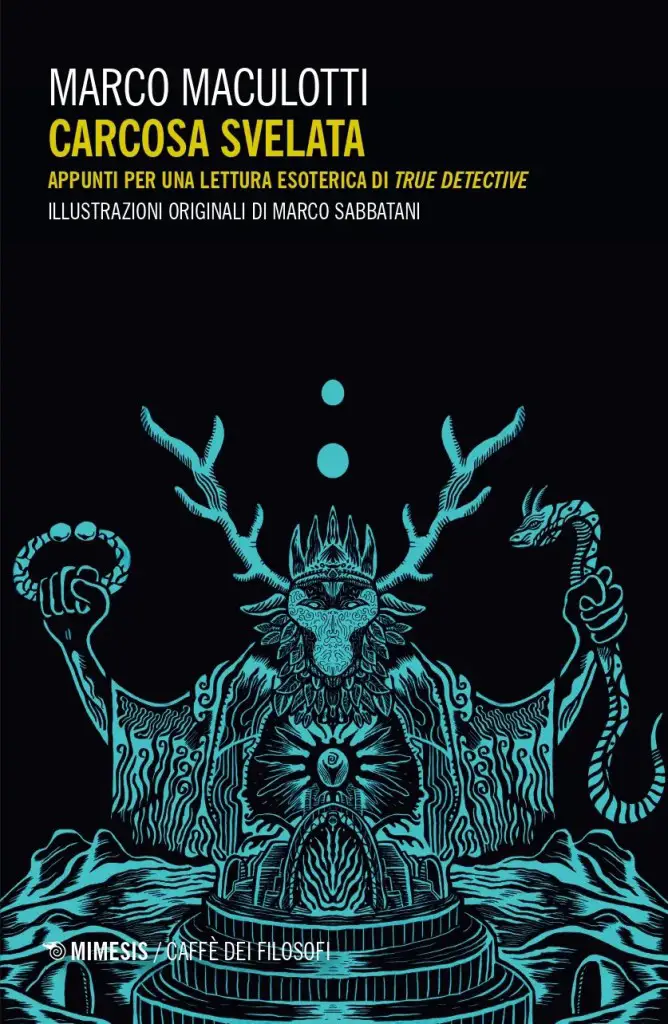Monday 26 April from 18:30 pm Stroncature hosts the presentation of two volumes: the first, “Abraxas: the magic of the drum” (Mimesis) by Paolo Riberi and Igor Caputo; the second, “Carcosa unveiled” by Marco Maculotti (Mimesis). The authors dialogue on the two texts. Moderated by Nunziante Mastrolia.
To participate you need to register for free
at the following Zoom link:
https://zoom.us/webinar/89329750662
In the first two centuries after Christ, the cult of a bizarre Middle Eastern divinity spread throughout the Roman Mediterranean, originating in the apocryphal gospels and connected to a particular strand of early Christianity: Gnosticism. The god's name was Abraxas, and his task was to reign over the lower cosmos, ensuring the balance of the universal cycle, destined to repeat itself unchanged, without stopping. The origins of Abraxas, however, are much older, and descend from the shamanic traditions of Central Asia: proof of this is his ritual drum, a divine attribute that came to Palestine from the steppes through the cultural influence of the Persian empire. In fact, the shamans already celebrated the circular rite of the eternal return, believing that time was nothing more than a "flat circle", a primordial force from which springs a creation destined to repeat itself without stopping.
It is not a legend confined to a distant past: the myth of the eternal return strongly re-emerges also in contemporary spirituality and in pop culture, as confirmed by the international success of the first season of the TV series. T by Nic Pizzolatto, who re-elaborates the concept of "Devouring Time" in noir hues, taking inspiration above all from the essay by Thomas Ligotti ("The conspiracy against the human race"), from the fantastic literature of the late 800th and early 900th centuries (Ambrose Bierce, Robert W. Chambers, HP Lovecraft) and pessimistic and nihilistic philosophy (Schopenhauer, Cioran). The protagonist of the series is the cynical investigator Rust Cohle, played by the actor Matthew Mc Conaughey, who exhibits in his complex character all the trappings of the contemporary "shaman". From the mythical Abraxas of the apocryphal gospels to the swamps of Louisiana, the idea of the cyclic cosmos continues to influence the West, revolutionizing its apparent certainties ...
ABRAXAS: the magic of the drum

In the first centuries after Christ, the cult of a mysterious divinity spread throughout the Roman Mediterranean, which we find depicted on numerous gems and amulets, but also invoked in many prayers and magical papyri. Her name is Abraxas, and her features are that of a humanoid creature with serpentine feet and a rooster's head. We find it in the Gnostic Gospels, testimonies of a real alternative Christianity. But is Abraxas a benign god or an evil demon? What is the round object that is holding in one hand? By examining the sources and historical evidence, the book reconstructs a fascinating network of symbols which, through the millenary magic drum, connects the shamanic rituals of Central Asia with the cults of the ancient Mediterranean. And not only that: over the centuries the mystery of Abraxas has fascinated the Knights Templar, Erasmus, Thomas More, Jung and Crowley, and continues to survive in contemporary pop culture, including novels, TV series and comics.
CARCOSA UNVEILED

What it made T such a special and cult TV series? Probably its characteristic of being based more on the unspoken than on the said, of exploiting more the created atmospheres and wisely veiled symbolisms, rather than what actually happens. A laudable peculiarity which, however, makes it very difficult to decipher its innermost meanings. If examining the series as a whole may seem an almost impossible operation, precisely because of its characteristic of not saying, no one forbids trying to shed light on some key elements of the story, which can be analyzed for example with the tools of the anthropology of the Sacred. and the history of religions.

A comment on "“The cyclical cosmos and the myth of the eternal return”, on Stroncature"